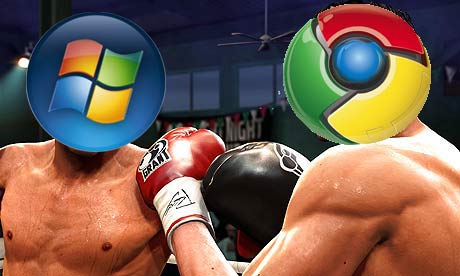Dick Cheney's abuse of secrecy
NYT: "Cheney Is Linked to Concealment of C.I.A. Project."
The project, which current CIA director Leon Panetta "ended the program when he first learned of its existence from subordinates on June 23," remains secret:
Intelligence and Congressional officials have said the unidentified program did not involve the C.I.A. interrogation program and did not involve domestic intelligence activities. They have said the program was started by the counterterrorism center at the C.I.A. shortly after the attacks of Sept. 11, 2001, but never became fully operational, involving planning and some training that took place off and on from 2001 until this year.
What is important here, though, is not what it was -- and one can only imagine -- but that Cheney kept it from Congress. But, in so doing, did he break the law?
The law requires the president to make sure the intelligence committees "are kept fully and currently informed of the intelligence activities of the United States, including any significant anticipated intelligence activity." But the language of the statute, the amended National Security Act of 1947, leaves some leeway for judgment, saying such briefings should be done "to the extent consistent with due regard for the protection from unauthorized disclosure of classified information relating to sensitive intelligence sources and methods or other exceptionally sensitive matters."
In addition, for covert action programs, a particularly secret category in which the role of the United States is hidden, the law says that briefings can be limited to the so-called Gang of Eight, consisting of the Republican and Democratic leaders of both houses of Congress and of their intelligence committees.
So, yes, it's certainly possible that the program was so covert that Cheney acted within the law in keeping it secret. But did the "Gang of Eight" know about it? If not, what was the justification for that? That it was super-covert -- so much so that even the leadership was kept in the dark?
Maybe, and I do respect the need for secrecy, but, given Cheney's track record, we are right to be skeptical:
The disclosure about Mr. Cheney's role in the unidentified C.I.A. program comes a day after an inspector general's report underscored the central role of the former vice president's office in restricting to a small circle of officials knowledge of the National Security Agency's program of eavesdropping without warrants, a degree of secrecy that the report concluded hurt the effectiveness of the counterterrorism surveillance effort.
And there was so much more, of course: "In the eight years of his vice presidency, Mr. Cheney was the Bush administration's most vehement defender of the secrecy of government activities, particularly in the intelligence arena."
Cheney knew what he was doing. And regardless of whatever lame justifications he may have used to defend his actions, he abused the need for secrecy throughout the Bush presidency. As more and more comes out, including this, it is more and more troubling what Bush and Cheney and their various minions authorized in conducting their so-called war on terror.
Labels: CIA, Dick Cheney, secrecy, U.S. intelligence community, war on terror








